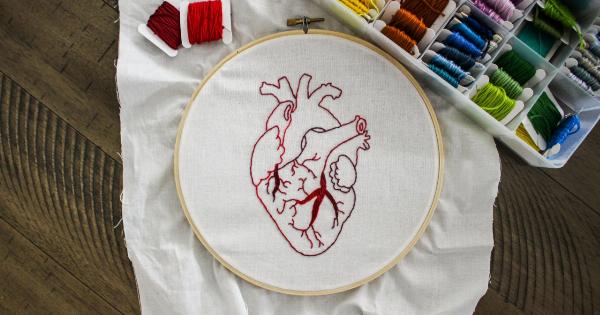Going on holiday can be an exciting and enjoyable experience, but for individuals with diabetes, it requires careful planning and preparation.
Managing diabetes while on vacation can present some unique challenges, but with proper precautions, it is possible to have a safe and relaxing trip. In this article, we will discuss some important tips and strategies to help individuals with diabetes stay healthy and manage their condition during their holiday.
1. Consult with Your Healthcare Team
Prior to embarking on your holiday, it is crucial to schedule an appointment with your healthcare team. This includes your primary care physician, endocrinologist, and diabetes educator.
They can provide you with valuable advice tailored to your specific needs and help you create a plan for your trip. They can also ensure that your diabetes management strategies are appropriate and effective.
2. Pack Sufficient Medications and Supplies
Make sure to pack more than enough diabetes medications and supplies for the duration of your holiday. It may be a good idea to pack extra in case of any unexpected delays or emergencies.
Be sure to keep your medications in their original packaging and store them in a cool, dry place. Additionally, always carry your medications and supplies with you in your carry-on luggage to prevent loss or damage.
3. Understand Travel Time and Adjust Medications
If you are traveling across different time zones, it is important to understand how it may affect your diabetes management. Consult with your healthcare team to determine how to adjust your medication schedule accordingly.
They can provide you with guidance on when and how to administer your medications to ensure optimal control of your blood sugar levels during your trip.
4. Keep Snacks and Glucose Sources Handy
While on holiday, it is essential to keep a ready supply of snacks and glucose sources with you at all times.
Long flights or delays can cause disruptions in meal timings, so having quick sources of carbohydrates, such as glucose tablets or juice boxes, can help in case of low blood sugar episodes. Always carry these supplies in your carry-on luggage for easy access when needed.
5. Be Mindful of Food Choices
When traveling to foreign destinations, it’s important to be mindful of your food choices. Different cuisines may have varying amounts of carbohydrates, which can impact your blood sugar levels.
Research local cuisine in advance and plan your meals accordingly. Don’t hesitate to ask about the ingredients or preparation methods if necessary. Monitoring your portions and opting for healthier options can also help you stay on track.
6. Stay Active
Regular physical activity is an essential component of diabetes management. Even while on holiday, try to incorporate exercise into your daily routine. Take advantage of opportunities for walking tours, swimming, or other recreational activities.
Staying active can help you maintain better blood sugar control and offset any indulgences in holiday treats.
7. Stay Hydrated
Dehydration can have a significant impact on blood sugar levels. When traveling, especially in warmer climates, it is crucial to stay well-hydrated. Carry a refillable water bottle and drink plenty of fluids throughout the day.
Avoid sugary drinks and alcohol, as they can cause fluctuations in blood sugar levels.
8. Carry Identification and Medical Information
Always carry identification and medical information that clearly states you have diabetes. This can be in the form of a medical ID bracelet or a card.
In case of emergencies or if you need medical assistance, this information will help healthcare professionals make appropriate decisions quickly. Additionally, it is wise to carry a list of emergency contacts, including your healthcare team’s numbers.
9. Plan for Emergencies
While we hope for the best, it is important to plan for emergencies. Research the availability of medical facilities and pharmacies in the area you are visiting.
Carry an emergency kit that includes glucose gel or tablets, glucagon, and any necessary supplies for treating hypoglycemia. Familiarize yourself with the local emergency number and know how to communicate your location clearly in case of any unforeseen situations.
10. Take Time to Relax and Destress
Holidays are meant to be relaxing! Stress can have a negative impact on blood sugar levels, so it’s important to take time to relax and destress.
Engage in activities that help you unwind, whether it’s listening to music, practicing deep breathing exercises, or spending some quiet time alone. Taking care of your mental well-being is just as important as managing your physical health.





























